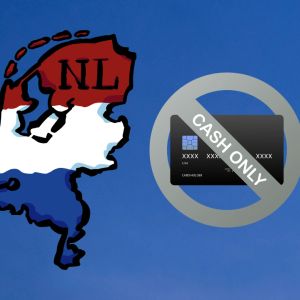Dutch people told to keep emergency cash in wake of Spain blackout
3 min read
Dutch citizens have been advised to keep a minimum amount of cash in their pockets and wallets in case of emergency situations, such as the recent massive power outage that hit Spain and parts of Portugal. The warning, issued by the Netherlands’ central bank, finance ministry, and other organizations, also highlighted the heightened geopolitical tensions and current cybersecurity threats that could challenge payment systems around the world. Central bank urges Dutch citizens to prep for electronic payments crisis Dutch consumers and retailers alike should be ready for emergencies that bring down electronic payments for 72 hours or more, De Nederlandsche Bank ( DNB ) has warned, weeks after a breakdown in the Spanish power grid shut down payment systems across the Iberian Peninsula. “That could be the case if payment terminals are not working, ATMs are down, or online banking cannot be used,” the monetary authority said in a warning issued together with commercial banks, consumer organizations, retail associations, the Ministry of Finance, and other institutions participating in the country’s National Forum on the Payment System (NFPS). It further detailed: “Consumers are advised to keep around €70 per person (€30 per child) in cash on hand and to have multiple means of payment to prepare for such situations.” The central bank highlighted that having a mobile banking app may be helpful as well, as it could serve as a means to transfer money and pay online. “If payment terminals no longer work, this can be a good alternative,” the regulator said, adding that those who prefer to make payments using their smartphones should also have a debit card with them or at home. It advised retailers, including shops, restaurants, petrol stations, and pharmacies, to maintain payment options like apps using QR codes and to keep enough change in their registers for at least three days of system outages. The call for cash is included in a “resilience advice” for emergency situations published by the NFPS, part of the broader “Think Ahead” initiative of the Dutch government. The latter seeks to prepare the society for multi-day outages, the DNB noted in a press release. The serious breakdown of Spain’s power distribution network in April left millions of people in the country and in neighboring Portugal without electricity and access to basic services while disrupting card payments and ATM withdrawals across the region. Het MOB (Maatschappelijk Overleg Betalingsverkeer) adviseert: Houd 70 euro cash in huis per volwassene én zorg voor meerdere betaalmiddelen (mobiel, pinpas, bankapp). Zo blijf jij bij storingen gewoon betalen. Meer lezen? https://t.co/kswrnfIld1 — De Nederlandsche Bank (@DNB_NL) May 22, 2025 ‘Keep cash’ warning comes amid global tensions and cyber threats While insisting that the country’s electronic payment system remains “highly reliable,” the Dutch central bank stressed “it’s always a good idea to be prepared for emergencies,” especially amid the currently increased geopolitical tensions and cyber threats that could challenge its security. The plan to explore short-term measures meant to ensure resilient payments in the Netherlands was announced by the NFPS in November 2024. The suggested €70 – €30 (approx. $80 – $35) emergency cash is based on calculations made by the National Institute for Family Finance Information, the DNB noted, elaborating: “Consumers can, of course, decide for themselves whether the recommended amount meets their needs, or whether they want to adjust the amount according to their own expenses and budget.” Citing the NFPS, the financial authority went on to advise Dutch citizens to hold both banknotes and coins in their wallets. “Many consumers already keep some cash at home, including for emergency situations. If the cash amount at home is not yet sufficient, it can be gradually built up over a few months by setting aside change from time to time,” the bank proposed. The notice assured that De Nederlandsche Bank, the Dutch ATM operator Geldmaat, and security transport companies have sufficient supplies of euro cash in store to meet any additional demand from the public. Last month’s massive blackout in Spain spurred demand for cash , the use of which the Spanish government has been trying to reduce in recent years. The few stores that remained open in the midst of the crisis were accepting mainly paper money and metal coins. KEY Difference Wire helps crypto brands break through and dominate headlines fast

Source: Cryptopolitan



